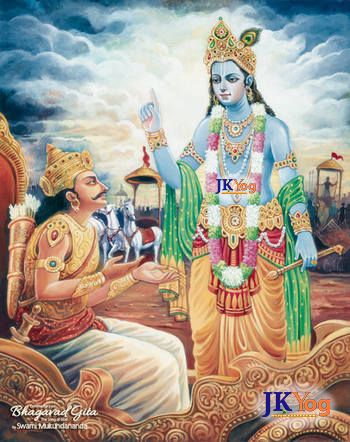

सर्वद्वाराणि संयम्य मनो हृदि निरुध्य च |
मूर्ध्न्याधायात्मन: प्राणमास्थितो योगधारणाम् || 12||
sarva-dvārāṇi sanyamya mano hṛidi nirudhya cha
mūrdhnyādhāyātmanaḥ prāṇam āsthito yoga-dhāraṇām
sarva-dvarani sanyamya mano hridi nirudhya cha
murdhnyadhayatmanah pranam asthito yoga-dharanam
BG 8.12: Restraining all the gates of the body and fixing the mind in the heart region, and then drawing the life-breath to the head, one should get established in steadfast yogic concentration.

Start your day with a nugget of timeless inspiring wisdom from the Holy Bhagavad Gita delivered straight to your email!
It is through the senses and their objects the world enters our mind. When we see, hear, touch, taste, or smell an object of perception, it leaves an impression on our mind. Our mind then dwells upon these experiences, starts to contemplate, and creates repetitive thoughts that increase our attachment to the world. Therefore, a practitioner of meditation should guard himself against the incessant stream of worldly thoughts that the unrestrained senses can create. Locking the world out by restraining the mind and the senses; is most essential in meditation.
In this verse, Shree Krishna uses the words sarva-dvārāṇi-sanyamya, which mean guarding the gates of the body, and hṛidi nirudhya that means “locking the mind in the heart.” He says that by controlling the passages that enter the body, one can lock the mind in the heart. Restricting the senses from their natural tendencies and directing the mind toward akṣharam the imperishable Supreme Lord. Then with complete attention and devotional feelings, one should meditate on Him. He ends the verse with yoga-dhāraṇām, which means “uniting the consciousness with God.”